Kinship CARE is an initiative of Secure Start®.
At Secure Start, we believe that Kinship Carers make a highly valuable contribution to the care of children in need, and to society. Yet, kinship carers do not always get the support they need.
Kinship CARE reflects our commitment to providing kinship carers with knowledge and strategies that supports them in the kinship carer role.
Kinship carers are a large and diverse group, though they share many things in common. Chief amongst these is their commitment to caring for children with whom they have a relational connection, when the children cannot be at home with mum and/or dad.
Though they perform a similar role to other out-of-home carers (including those who foster or adopt), kinship carers have their own circumstances and needs. Kinship carers must have training support that is tailored to their own circumstances and needs.
Kinship CARE is a comprehensive training package for trauma-informed care and practice among kinship carers and professionals who support them. Kinship CARE is tailored to the experience and training needs of kinship carers. Kinship CARE supports enriched relational connections. Kinship CARE also recognises that children and young people who cannot safely be cared for at home or are recovering from a tough start to life have additional care needs. Kinship CARE supports having an understanding of what those additional care needs are and how they may be addressed therapeutically. Kinship CARE acknowledges that kinship carers have much to contend with, and that advice and guidance needs to be practical and realistic. Kinship CARE supports the development of Therapeutic Care Plans that are tailored to the characteristics and capabilities of individual kinship households. Kinship CARE acknowledges the persistence of kinship carers in challenging circumstances. Kinship CARE offers a practical approach to thinking about and implementing self-care.
Kinship CARE supports caregiver engagement with training. Kinship CARE focuses on the assets kinship carers bring to the role. Empowerment of kinship carers is a central aspect and intended outcome. Kinship CARE acknowledges strengths. Through complementary training for kinship carers and the professionals who support them in the role, Kinship CARE supports a common knowledge, language, and approach. In doing so, Kinship CARE supports equality, effective communication, and alignment in the care team.
Kinship CARE is delivered in a manner that makes it accessible to kinship carers (and professionals who support them). Delivery utilises verbal content, practical demonstrations, videos, and individual and group reflective activities. Kinship CARE follows adult-learning principles. Embeddedness is supported through trained professionals modelling the Model in their own interactions with kinship carers.
Kinship CARE encourages the implementation of a therapeutic care environment around the kinship child, in the pursuits of an optimal psychological environment and developmental outcomes within the kinship child. Kinship CARE incorporates the CARE1 (Consistency, Accessibility, Responsiveness, Emotional Connectedness) and Triple-A Models2. Drawn from psychological science, the CARE and Triple-A Models represent evidence-informed frameworks for understanding what good caregiving and psychological functioning looks like, and the impact of early adversity on the developing child. Kinship CARE applies thinking and caregiving strategies that support optimal developmental outcomes for children.
Kinship CARE is derived from the Kinship CARE Project. Initially a two-year joint-initiative of Secure Start® and the Department for Child Protection (DCP), the Kinship CARE Project was delivered to 250 kinship carers across 7 regional and 17 metropolitan locations. Twelve percent (12%) of participants identified as being of indigenous descent. Eighty-four percent (84%) of participant kinship carers who completed the training and a three-month follow up survey report that they are experiencing improved relationships with the children in their care, eighty-nine percent (89%) report that they feel more confident in the role, ninety-eight percent (98%) report that they have learnt strategies that have helped them in the kinship role, and one-hundred percent (100%) report that they have received helpful information. Session by session evaluations show that more than 98% of participant kinship carers indicate that the training was informative, practical and useful, that they were satisfied with the training, and that they would recommend it to other kinship carers. Analysis of pre-post questionnaires for the first twelve implementation groups identified that kinship carers were more than twice as likely to refer to behaviour being an expression of needs after four training sessions.
Kinship CARE recognises the prevalence of family trauma and loss among kinship and indigenous families. Kinship CARE incorporates language and content that is respectful, inclusive and non-shaming.
References:
- Pearce, C.M. (2016) A Short Introduction to Attachment and Attachment Disorder (Second Edition). London, Jessica Kingsley Publishers
- Pearce, C.M. (2010). An Integration of Theory, Science and Reflective Clinical Practice in the Care and Management of Attachment-Disordered Children – A Triple A Approach. Educational and Child Psychology (Special Issue on Attachment), 27 (3): 73-86
Recently, an Australian Aboriginal Grandmother who participated in the Kinship CARE Project produced the artwork below to represent her experience of the Project. It blew us away. Her story of the artwork can be accessed by clicking here. Both the story of the artwork, and the artwork itself, are displayed with the consent of the artist, who hoped that it would support access to the Kinship CARE Project among Indigenous Kinship Carers. The artist also gave consent to being identified in connection with the artwork and the Kinship CARE Project.
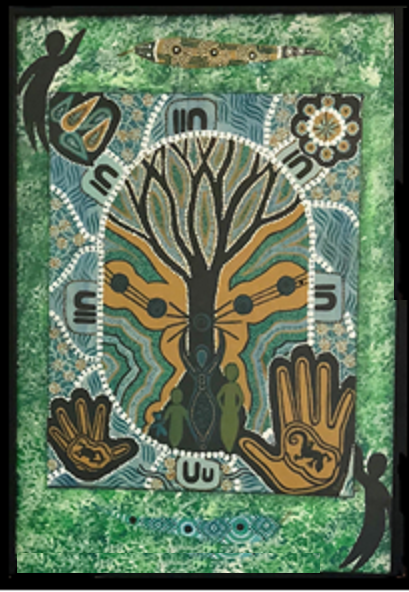
New Beginnings
The Kinship CARE Project, which was delivered in South Australia in the Department for Child Protection’s (DCP) Kinship Care Program, came to an end in March 2020. This initial phase spanned more than two years and incorporated training for both kinship carers and DCP staff who support them. In addition, staff from other service providers, including Connecting Foster and Kinship Carers – SA, the State’s peak advocacy body for foster and kinship carers, were also trained in the Kinship CARE Curriculum.
In Phase Two of Kinship CARE we are delivering the Curriculum in Aboriginal Kinship Care, in support of the partnership between InComPro Aboriginal Association and Uniting Care Wesley Bowden (UCWB). Called Martinthi, in the language of the original inhabitants of the Adelaide region Martinthi means ‘to embrace/to clasp/to hold’ and reflects the importance of connection and community amongst Aboriginal peoples. To find out more about Martinthi, including about accessing support for kinship carers of Aboriginal children placed by the Department for Child Protection, contact 84482881.
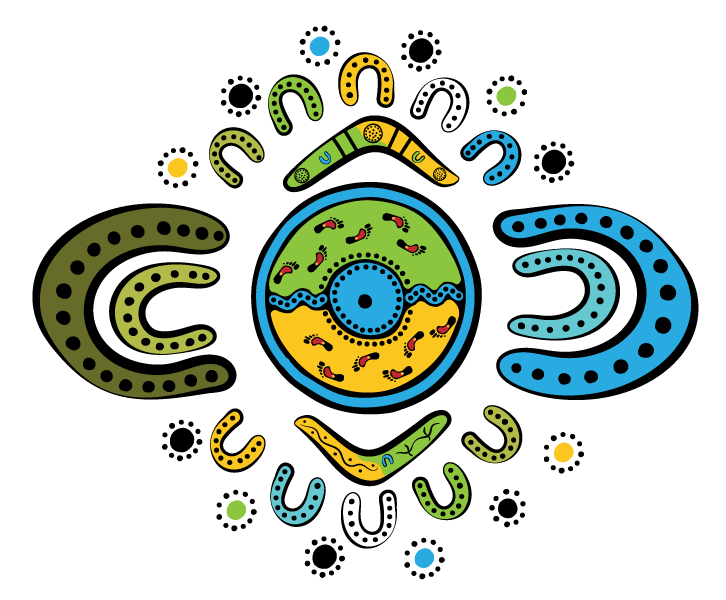
Finally, we are also in discussion with a number of organisations who support kinship carers in the UK and Ireland, including TUSLA (Child and Family Agency).

Information for Professionals and Organisations
To access A Short Introduction to the Kinship CARE Project, which includes additional information about the content and delivery of KInship CARE , please click here.
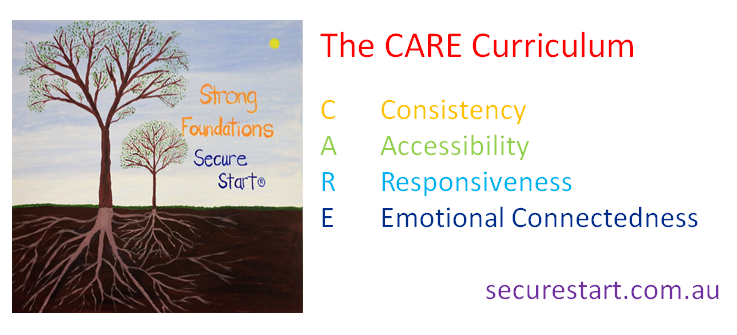
Contacts:
- Colby Pearce (Principal Trainer) – colby@securestart.com.au
- Rebecca Pearce (Project Support) – admin@securestart.com.au
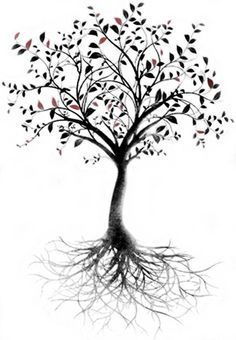
- Grow therapeutic care environments that support a child’s recovery from adverse childhood experiences
- Grow a common understanding, a common language, and a common approach
- Grow confident and competent carers and support professionals
- Grow independent problem-solving
- Grow service-wide fidelity and accountability
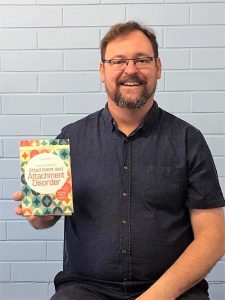
Delivered by Secure Start® and Colby Pearce, Clinical Psychologist, Author and Developer of therapeutic programmes – consulting internationally.
To contact Colby:
